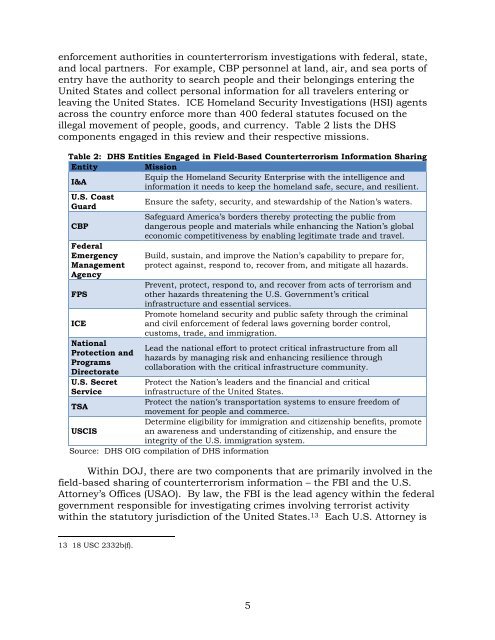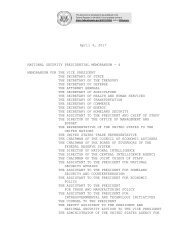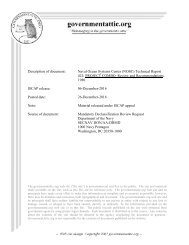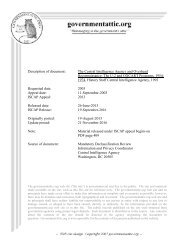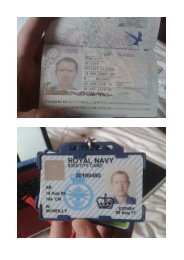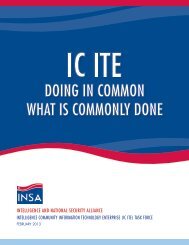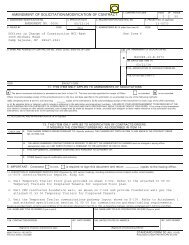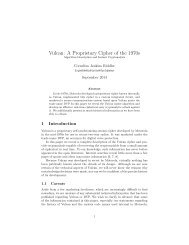Review of Domestic Sharing of Counterterrorism Information
Domestic_Sharing_Counterterrorism_Information_Report
Domestic_Sharing_Counterterrorism_Information_Report
Create successful ePaper yourself
Turn your PDF publications into a flip-book with our unique Google optimized e-Paper software.
enforcement authorities in counterterrorism investigations with federal, state,<br />
and local partners. For example, CBP personnel at land, air, and sea ports <strong>of</strong><br />
entry have the authority to search people and their belongings entering the<br />
United States and collect personal information for all travelers entering or<br />
leaving the United States. ICE Homeland Security Investigations (HSI) agents<br />
across the country enforce more than 400 federal statutes focused on the<br />
illegal movement <strong>of</strong> people, goods, and currency. Table 2 lists the DHS<br />
components engaged in this review and their respective missions.<br />
Table 2: DHS Entities Engaged in Field-Based <strong>Counterterrorism</strong> <strong>Information</strong> <strong>Sharing</strong><br />
Entity<br />
Mission<br />
Equip the Homeland Security Enterprise with the intelligence and<br />
I&A<br />
information it needs to keep the homeland safe, secure, and resilient.<br />
U.S. Coast<br />
Ensure the safety, security, and stewardship <strong>of</strong> the Nation’s waters.<br />
Guard<br />
Safeguard America’s borders thereby protecting the public from<br />
CBP<br />
dangerous people and materials while enhancing the Nation’s global<br />
economic competitiveness by enabling legitimate trade and travel.<br />
Federal<br />
Emergency Build, sustain, and improve the Nation’s capability to prepare for,<br />
Management protect against, respond to, recover from, and mitigate all hazards.<br />
Agency<br />
Prevent, protect, respond to, and recover from acts <strong>of</strong> terrorism and<br />
FPS<br />
other hazards threatening the U.S. Government’s critical<br />
infrastructure and essential services.<br />
Promote homeland security and public safety through the criminal<br />
ICE<br />
and civil enforcement <strong>of</strong> federal laws governing border control,<br />
customs, trade, and immigration.<br />
National<br />
Protection and<br />
Programs<br />
Directorate<br />
U.S. Secret<br />
Service<br />
Lead the national effort to protect critical infrastructure from all<br />
hazards by managing risk and enhancing resilience through<br />
collaboration with the critical infrastructure community.<br />
Protect the Nation’s leaders and the financial and critical<br />
infrastructure <strong>of</strong> the United States.<br />
Protect the nation’s transportation systems to ensure freedom <strong>of</strong><br />
TSA<br />
movement for people and commerce.<br />
Determine eligibility for immigration and citizenship benefits, promote<br />
USCIS<br />
an awareness and understanding <strong>of</strong> citizenship, and ensure the<br />
integrity <strong>of</strong> the U.S. immigration system.<br />
Source: DHS OIG compilation <strong>of</strong> DHS information<br />
Within DOJ, there are two components that are primarily involved in the<br />
field-based sharing <strong>of</strong> counterterrorism information – the FBI and the U.S.<br />
Attorney’s Offices (USAO). By law, the FBI is the lead agency within the federal<br />
government responsible for investigating crimes involving terrorist activity<br />
within the statutory jurisdiction <strong>of</strong> the United States. 13 Each U.S. Attorney is<br />
13 18 USC 2332b(f).<br />
5


